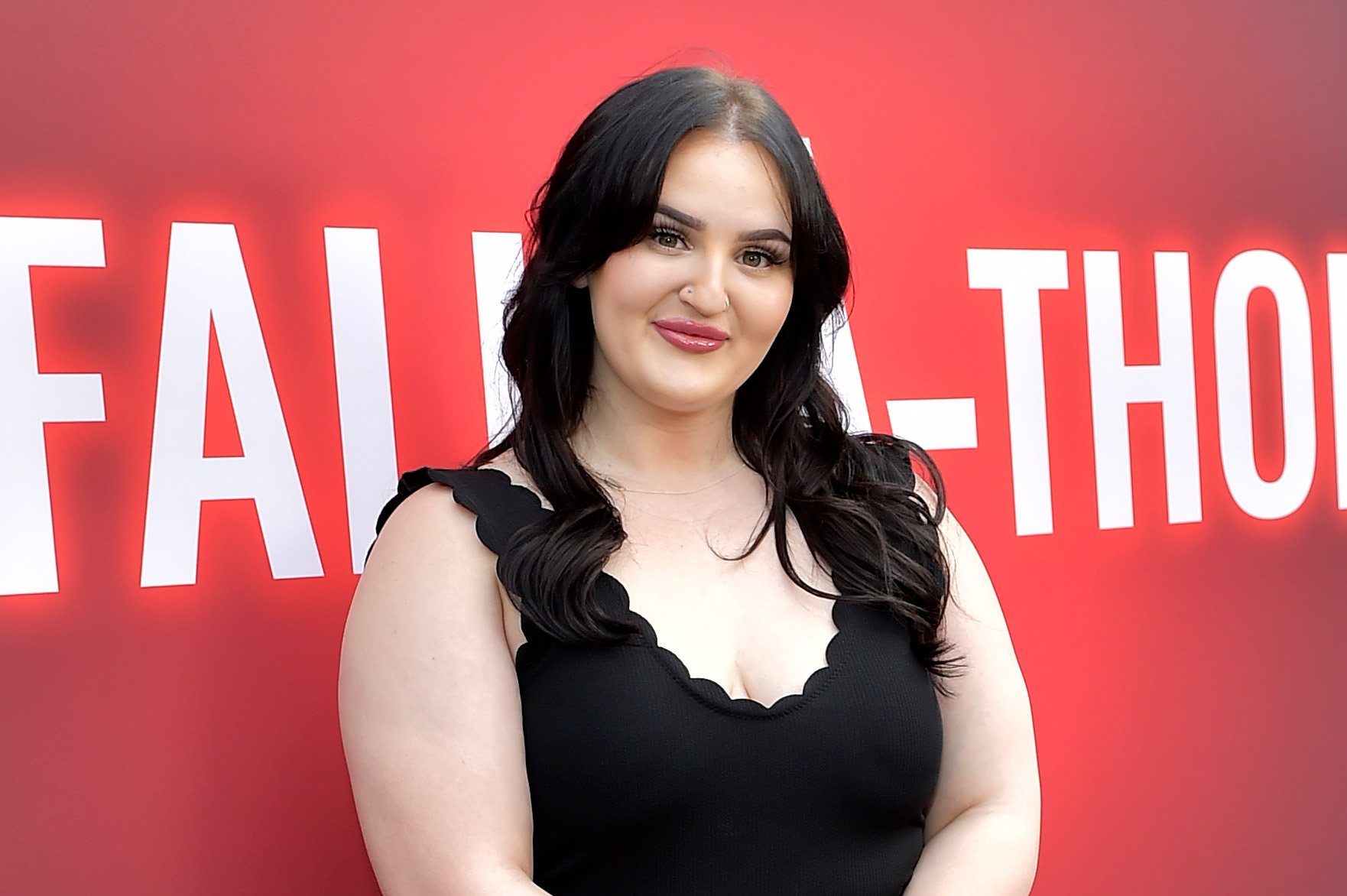
The world of beauty influencing has evolved. There was a time when it was a wholesome online environment where creators would post makeup tutorials, reviews, and recommendations. Now, it’s one of the most drama-filled communities online. Even those who try to stay away from the drama altogether are not immune. The latest example: the TikToker Mikayla Nogueira. Earlier this week, the 24-year-old beauty influencer uploaded a video reviewing a mascara. Soon after, she faced a tidal wave of backlash online as people accused her of wearing fake lashes to amplify the mascara’s effects, thereby providing inauthentic advice.
In the video, Noguiera stitches another creator’s video and records herself with the L’Oreal Telescopic Life mascara on one eye, saying, “This literally just changed my life. This looks like false lashes—” before stopping herself and saying, “How? What?” The words “L’Oreal Paris Partner” flash on the screen in the bottom left corner before disappearing, and she demonstrates how to use the product. “I’m speechless, and I’m not sure anyone is ever going to be able to compete with this product,” she says at the end of the video.
Then came the comments. “Girl, did you add falsies at the end?” one person commented. “We can see the length in the outer corner.” Nogueira assured her followers that she did not, writing back in the comments section, “Nooo, just three/four coats and my tight liner.” In response to another comment about the false lashes, she wrote, “Nooo omg L’Oreal would never allow that in a partnered post!!! But y’all are proving my point.” Within three days, the video has boomed in popularity and received over 24.6 million views as debates over its authenticity continue.
Read More: Why the Internet Became Fixated on an Influencer Trip to Dubai
Representatives for Nogueira did not immediately respond to TIME’s request for comment.
A popular beauty YouTuber named Alissa Ashley posted a video on TikTok explaining what she saw as the main problem with Nogueira’s review (based on the unconfirmed assumption that the latter was wearing false lashes). “When you have such a big platform, and you decide to use it to put a fabricated review up, that’s not OK,” Ashley says in the video. She goes on to say that this affects not only Nogueira’s content but the beauty community as a whole because it further validates people’s skepticism when it comes to beauty influencers reviewing products.
Videos with the hashtag #MikaylaNogueiradrama have accumulated over 10.5 million views, and Nogueira has faced a barrage of criticism. Thus far, she has not responded other than in her initial responses to comments on TikTok. Aside from the drama over the lashes themselves, there is also a chance that the influencer could face a fine from the Federal Trade Commission for failing to include the usual “Paid Partnership” icon at the bottom of the video like sponsored content usually does. The FTC’s Truth in Advertising policies require content creators to disclose when they have “a material connection” with a brand. This includes “a personal, family, or employment relationship or a financial relationship – such as the brand paying you or giving you free or discounted products or services.” The policy also requires that if the creator is making an endorsement in a video, they must put the disclosure in the video, which Nogueira did, by putting “L’Oreal Paris Partner” on the screen briefly and in a hashtag.
Other beauty influencers, including Bretman Rock and Kirsten Titus, have made videos using the same product as Nogueira and given it favorable reviews. They used the same hashtags and put “L’Oreal Paris Partner” in their videos. Reactions to their videos continued to stoke drama, as users pointed out that their results were much less dramatic than Nogueira’s when they compared the videos. Embattled creators like James Charles (who admitted to and later apologized for messaging and soliciting nude pictures from minors) and Jeffree Star (who was the subject of an Insider exposé and faced allegations of bullying, sexual assault, and violence) used the opportunity to do their own product reviews of the mascara.
We have yet to see where this particular drama will land when it comes to the mascara review’s authenticity. But regardless of the outcome, the fallout serves as an example of the shift the beauty world has seen since many of its stars betrayed their followers’ trust. In one particularly notorious example, the case of YouTuber Jaclyn Hill’s messy lipstick launch, customers alleged to have found hair and mold in their products, leading many today to be primed to sniff out the first scent of an influencer leading them astray. And this kind of mistrust extends beyond the beauty community; last month, an “ancestral lifestyle” influencer called The Liver King faced a backlash when he admitted to taking steroids, in addition to his raw meat diet, to shape his physique.
When it comes to Noguiera’s future, one must look only to previous subjects of controversy. Although many creators in the beauty community have had their own dramas, spats, and controversies, they’ve largely made it through to the other side and maintained a platform. Whether that means going radio-silent after posting a heartfelt apology on their Notes app or a customary apology YouTube video, or just continuing to post through it, it’s hard to squander a platform of millions. At the end of the day, controversy or not, the real winner here is the brand that commissioned the sponsored post.
More Must-Reads from TIME
- Breaking Down the 2024 Election Calendar
- How Nayib Bukele’s ‘Iron Fist’ Has Transformed El Salvador
- What if Ultra-Processed Foods Aren’t as Bad as You Think?
- How Ukraine Beat Russia in the Battle of the Black Sea
- Long COVID Looks Different in Kids
- How Project 2025 Would Jeopardize Americans’ Health
- What a $129 Frying Pan Says About America’s Eating Habits
- The 32 Most Anticipated Books of Fall 2024
Write to Moises Mendez II at moises.mendez@time.com